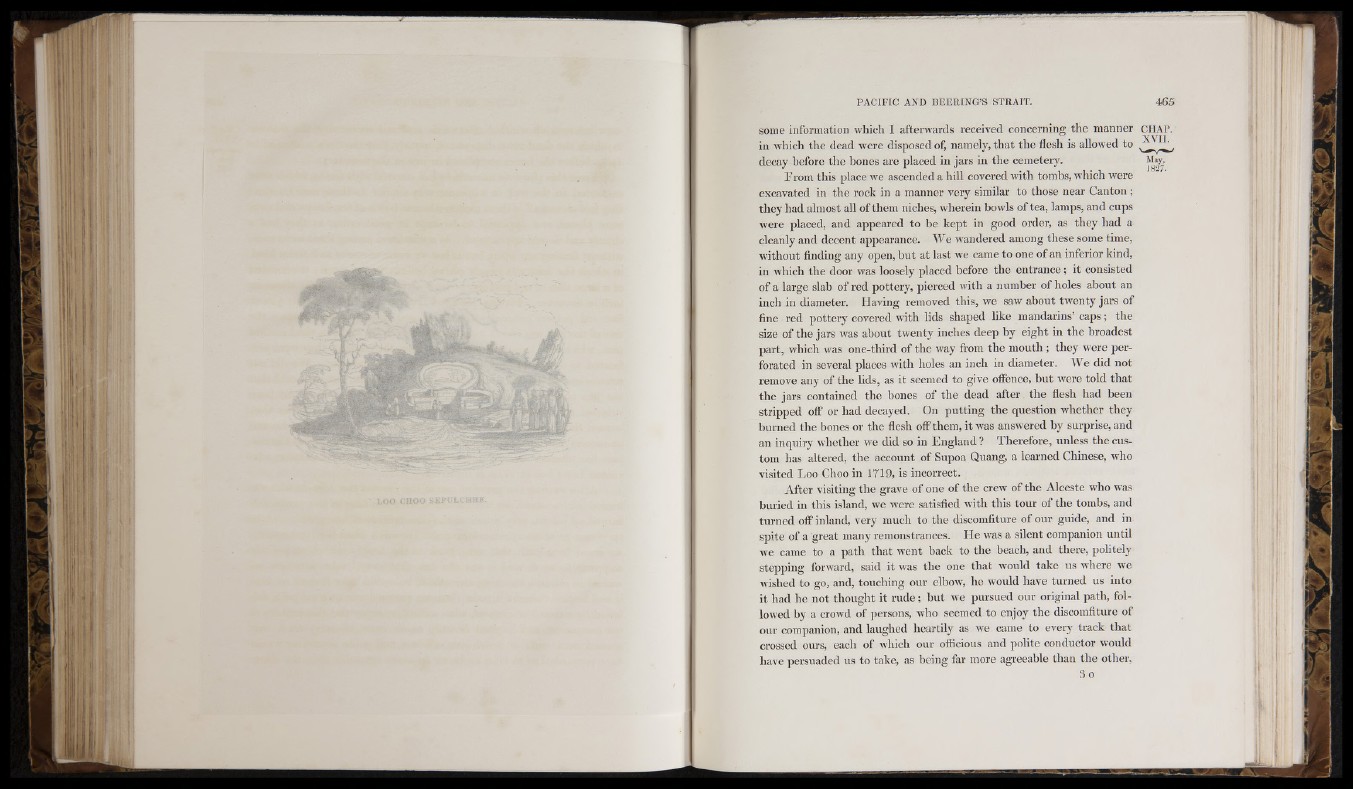
JIM
<11 r '
i ¡1
Fill ‘ jt f
iii:l h '’
III
lllll-
! i
11:"
1' '
some information which I afterwards received concerning the manner
in which the dead were disposed of, namely, that the flesh is aUowed to
decay before the bones are placed in jars in the cemetery.
From this place we ascended a hill covered with tombs, which were
excavated in the rock in a manner very similar to those near Canton ;
they had almost all of them niches, wherein bowls of tea, lamps, and cups
were placed, and appeared to be kept in good order, as they had a
cleanly and decent appearance. W e wandered among these some time,
W'ithout finding any open, but at last we came to one of an inferior kind,
in which the door was loosely placed before the entrance; it consisted
of a large slab of red pottery, pierced with a number of holes about an
inch in diameter. Flaving removed this, we saw about twenty jars of
fine red pottery covered w'ith lids shaped like mandarins’ caps; the
size of the jars w'as about twenty inches deep by eight in the broadest
part, W'hich was one-third of the way from the mouth ; they w'ere perforated
in several places w'ith holes an inch in diameter. AYe did not
remove any of the lids, as it seemed to give offence, but w'ere told that
the jars contained the bones of the dead after the flesh had been
stripped off or had decayed. On putting the question whether they
burned the bones or the flesh off them, it was answered by surprise, and
an inquiry whether we did so in England ? Therefore, unless the custom
has altered, the account of Supoa Quang, a learned Chinese, who
visited Loo Choo in 1719, is incorrect.
After visiting the grave of one of the crew of the Alceste who was
buried in this island, we w'ere satisfied with this tour of the tombs, and
turned off inland, very much to the discomfiture of our guide, and in
spite of a great many remonstrances. He w'as a silent companion until
we came to a path that went back to the beach, and there, politely
stepping forward, said it w'as the one that w'ould take us where we
wished to go, and, touching our elbow, he w'ould have turned us into
it had he not thought it rude; but we pursued our original path, followed
by a crowd of persons, who seemed to enjoy the discomfiture of
our companion, and laughed heartily as we came to every track that
crossed ours, each of which our officious and polite conductor would
have persuaded us to take, as being far more agreeable than the other,
3 o
N l